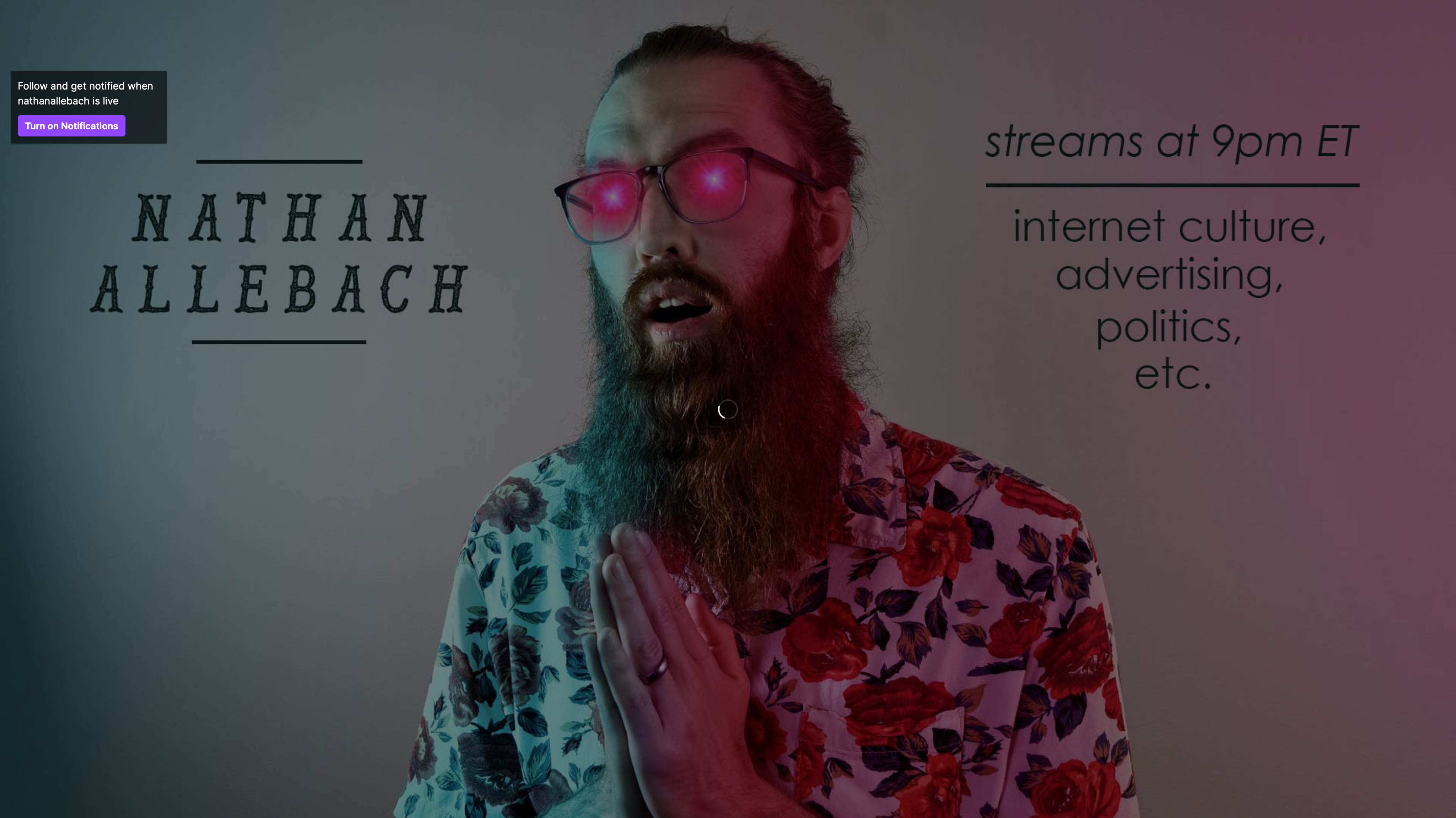Kat and Liz Talk About… Sex & Gender
Transcript:
[Shania Twain singing] “Man, I feel like a woman…”
Liz: Hey, Kat, do you ever feel like a woman?
Kat: Yeah. You know, maybe not in exactly the way that Twain seems to, but, uh, yeah, I do. I’ve always sort of felt like being a woman is a pretty core aspect of who I am and how I experienced the world internally. Not just in how the world is experiencing you. Yeah. Like definitely the fact that the world sees me as a woman and the fact that I was raised as a woman with certain ideas of what that means plays a role. But I think it goes beyond that, like at my core, I am a woman and if I grown up being told, I wasn’t, I’m pretty sure I would still feel like, no, that’s who I am inside. I’m a woman.
Liz: Huh.
… See, this is really interesting to me because I’ve never felt an internal sense of womanhood or something like that, at all. I never felt strongly tied to any internalized sense of gender. Like, yes, I was born with two X chromosomes as far as I know, and a vagina, but that’s sort of always seemed separate to me than anything about who I am. And if anything, a lot of the things that are supposed to come with being a woman or a girl always felt very weird and ill fitting, which is actually why I got interested in feminism in the first place. Because it was like, I don’t identify with these things that are supposed to be internal to me and my gender.
Kat: Yeah. I get that. Like for me, my body and what it looks like and how it works, definitely are a part of what makes me identify as a woman. But it goes beyond that—it’s like, there’s this internal feeling of femininity or womanhood that doesn’t have to do with what I look like or how the world perceives me or what my interests or outlooks are, but it’s somehow just there as a core part of my identity. And I guess that’s partly what got me interested in feminism and gender roles. This feeling that strict gender roles were sort of silly because whether I like pink or blue or enjoyed playing with Barbies or trucks or GI Joe’s—all of them—I was still somehow a woman because I just was.
Liz: We kind of came around to the same place, it seems like, about sex and gender, even though we started at very different points…. If people ask, I always say my sex is female and I don’t have a gender because gender is a social construct. It’s just a collection of things that society and culture have decided belongs to either “men” or “women.”
Kat: Whereas I would say my sex is female, and so is my gender, because it’s about more than my body or perceptions about it. It’s about how I feel inside.
Liz: So let’s talk about that…
Kat: When people say gender is a social construct, what exactly do they mean by that?
Liz: Yeah, it probably will help if we start with some definitions.
Kat: Right, right. Like what is sex and what is gender? And are they the same thing?
Liz: So sex is definitely the easier of these two concepts, although there’s still plenty of murkiness there. Sex is basically designated based on chromosomes and primary sex organs. The vast majority of the population can comfortably slotted into either being male or female, but—
Kat: But not everyone! Even though we hear that sex is a binary, it’s really not. A little under 2% of the population are intersex, meaning that they don’t clearly fit into that male or female box in terms of hormones, chromosomes, body parts or something similar.
Liz: See, the ‘sex is a binary’ and ‘a spectrum’ conversation is tricky because intersex isn’t really a third sex, you know, and I think that linguistically or scientifically that doesn’t really make sex a spectrum per se. But that’s not to deny the existence of intersex people, and it definitely does not follow that if one doesn’t think sex is a spectrum that they have very conservative beliefs about sex and gender.
Kat: Yeah. We talk about science as if it’s a series of settled facts, but it’s really not. We’re still learning and discovering so much about how our basic bodies work, and intersex people—who’ve been fighting to be recognized and given real ownership over their own bodies—are at the forefront of this
Liz: In any event, I think that, you know, as a culture, we get too hung up on arguing over labels and slogans like is “sex a binary” or “sex is a spectrum.” And it can actually sometimes obscure meaning, because it becomes more about wanting people to sort of recite the right words and say the magic incantations and phrases then about being able to have a more nuanced and empathetic discussion about what are very emotionally charged issues.
Kat: Yeah, exactly. People use sex and gender as sort of political clubs, a way to force people in back into the boxes that society’s built for them.
Liz: Either way—if gender is something society foists on you based on your sex, or if it’s something internal that isn’t necessarily tied to your sex at all—that gets us back to the same place, which is that we shouldn’t be slotting people into strict boxes based on these things.
Kat: So if sex is a physiological or biological categorization, then gender is a feeling, an internal monologue even, which sometimes gets translated into societal ideas about who or what a person is, how they present themselves and what they can or should do.
Liz: I think that’s where this gets confusing because there’s so much we’re talking about when we’re talking about gender. There’s what you were just talking about, which is what we might call gender identity—your internal feeling about it. There’s gender presentation, which is, you know, what you put out visually, and whether you hew more towards male or female beauty norms. There are gender roles and gendered expectations, which is what society thinks about you based on whether they see you as a male or female—you know, what kind of jobs they think you should have based on that, or how you will be as a leader, or how you’ll be in a relationship, and things like that.
Kat: A lot of times when we’re talking about “gender” in society, we’re actually talking about sex—or even more commonly, we’re talking about cultural expectations and conflicts and current or changing norms, which really are more about gendered expectations, which again, vary by culture and community—than we are talking about gender identity.
Liz: Yeah. And I think that’s right, and these things are also very different than sex differences, which are located in some sort of biological basis, even if I think that that gets a lot overblown—people make out innate differences between men and women to be way bigger than they are. But it’s not totally culturally manufactured to say, like, ‘on average, men are taller than women’ or that they have more musculature or things like that. Whereas gender is these things that society has simply assigned to be more “manly” or “womanly” based on prevailing fads and norms, like” girls like pink and boys like blue,” or “women hate science fiction,” or, you know, “women aren’t into libertarianism,” or “men are bad at housecleaning” and all the things like that.
Kat: Yeah. And these tend to vary a lot by culture as well. Like, when I went to kindergarten in the United States, I got in trouble for using the “boy scissors,” which were blue, instead of the “girl scissors,” which were pink. And I was five years old and just so confused because no one had ever color coded anything for me like that before, blue versus pink. Or how in the U.S. you hear people talking about how women can’t work in construction because they can’t lift heavy weight. And then you go to India where women specifically do most of the heavy lifting on construction sites, because that’s what they’ve traditionally done, while men traditionally do the “skilled labor.”
Liz: Interesting…. So that kind of gets us at: gender roles. Are they always bad?
Kat: Well, no, not exactly. As libertarian feminists, we don’t want to dictate the choices people make—but we do care about whether or not they’re actually getting to make those choices. So gender roles themselves aren’t necessarily bad, but strict and forced gender roles are.
Liz: Right. Yeah. I love it when women are like, “I’m not a feminist because I like cooking for my husband” or “I’m not a feminist because I like when my boyfriend takes charge in bed,” and I’m like, ‘yeah, me too! Me too on all of that!’—I mean, the cooking and the liking to be dominated. And that’s fine. It doesn’t make me any less of a feminist. It doesn’t make me any less of a woman or any more of a woman. But I don’t want a society where women are automatically assumed to be the ones who always do the cooking or the ones who have to be more submissive in bed. I want people to be able to make up their own minds about these things, for them and their relationships.
Kat: Right. Like, I like any number of things that are traditionally masculine. Uh, you know, I’m a libertarian, I’m fairly nerdy. I have a fairly dominant personality… And none of that makes me less of a woman, either.
Liz: People are all a mix, you know? And that’s why we’re all affected by these gendered perceptions of who we should be. .. I actually had someone say to me last week, “if you’re not transgender or don’t identify as non-binary, you shouldn’t be talking about gender issues at all, because they don’t affect you.” That’s like: whoa whoa whoa. Everybody is affected by tge societal expectations that gender creates, and anyone who is walking around in a body that is sexed or gendered and people view you as that, then you’re going to struggle with those expectations and you have them foisted upon you and you’re going to have to deal with that.
Kat: That is such a strange concept to me because everyone is affected by gender. We all have a gender. Even if that gender is no gender. And even if you are a walking sex or gender stereotype, you know, the girliest of girly girls are the biggest himbo since John Wayne, you can still feel stifled by the expectations of what that means and how you can express yourself and what you can do. And either way you will still be judged for it.
Liz: Right, like—rigid gender roles hurt everyone, whether you’re cisgender or transgender, when you identify as a man or a woman or whatever, because these expectations like ‘boys don’t cry’ or ‘women are weak,’ or ‘women are better caregivers’… It just puts a lot of pressure on people to conform to things that might not be an accurate representation of who they are and what their skills are and what they want their life to be like.
Kat: We see this happen a lot, even in what should be empowering, feminist thoughts and spaces. So for example, you’ll see certain feminists who felt that in order for women to escape the patriarchy, they needed to do it all—to be super moms and CEOs and give their 110% everywhere all the time—that women should lower their voices and not paint their nails or shave their legs, that they should wear pantsuits and think like men… When in actuality, all of that should just be a choice. Like you can be just as empowered with fake nails and red lipstick, as you can be in Oxfords with a leather briefcase or, you know, all of the above.
Kat: So I think one criticism that you hear from radical feminists—which is an actual school of feminist thought, and not just, like, really, really feminist or whatever it is that people seem to think that it means—so what you hear from rad-fems is that trans people are just cosplaying gender roles, that they’re taking these ideas, these social constructs about what sex and gender means and saying that just because they don’t fit into the gender construct personally, that they’re not actually that sex or gender. Rad fems say, you can’t just switch. Like if you’re assigned male at birth, you’re a man forever, no matter what. And so on. And as a libertarian feminist, I just don’t agree with that.
Liz: So I definitely don’t agree with that last part either. But it’s frustrating because I think they kind of get right in their critiques about the culture. The way we, as a culture, discuss sex and gender—and by extension, you know, the transgender experience—you have a lot of people, generally not transgender peoples themselves, but some people, media or activists—telling stories, and they’ll say things like ‘he was assigned female at birth but he always hated dresses and playing dolls.” Or “her parents realized she was really a woman because she never wanted to play with any of the boy toys.”
Liz: That stuff makes me want to bang my head up against the wall, because it’s just enforcing this idea that there are very rigid differences between girls and boys, or men and women, and that if you deviate from these stereotypes at all, then you actually are the other sex and gender instead of just, you know, an individual. It freaks me out when I hear young women today talking like, ‘well, I’m not a walking stereotype of womanhood, so I actually must be a man or a non-binary’—which is not what you’re hearing from the vast majority of trans people, you know, it’s obviously much deeper seated than that. But there are some people, transgender people, cisgender people, whatever, who do talk this way about sex and gender. And it just feels very regressive and like a step in the wrong direction.
Liz: I want a world where a man who likes dresses can just wear a dress, and a woman who hates girly stuff can just hate girly stuff, without it having to be like, actually they’re not a man, or actually they’re not a woman.
Kat: Right? You can be a very masculine man in a dress or a very feminine woman in a suit or a feminine man in a dress or a masculine woman in a suit or neither, or all of the above. And really it has nothing to do with the dress or the suit, or even what genitals you might happen to have. Yeah.
Liz: People should be treated like individuals. And that requires recognizing that—first of all, a lot of these supposedly scientific sex differences just aren’t based on science at all. And some that are based in reality are not as significant as a lot of reactionaries would make him out to be. But, second, even if there are these things that are real and it is more likely that men will have this trait, or, more likely that women will be better at this than men, tt just doesn’t follow that every man, every woman, is going to be like that
Kat: Right. There’s a huge amount of variation within the sexes. And part of being a feminist is realizing that and refusing to treat people as simply representatives of some collective sex or gender stereotype. From which it follows that we should also respect attempts to self identify and self define these things.
Liz: And that is where a lot of rad fems go really, really wrong, because they’re trying to prove that a lot of strict gender norm bullshit that we push on women is… well, bullshit. And then they also say ‘yeah, but.. If you were born with a penis, you can’t be part of our club. If you were born with a Y chromosome, you can’t use feminine pronouns, you can’t wear lipstick. You can not come into women’s only spaces.’ And it’s just like, how is that not at odds with creating a world in which sex should not define who you are and what you can be
Kat: Exactly. By saying that your sex at birth determines your gender and unchangeably limits who you can be and what you can identify as in your life and what choices you can make for yourself…they’re doing the exact same thing that a lot of anti-feminists do. They like to say things like “trans women are just men in dresses.” And it’s like, no, trans women are women period. Trans men are men. Period.
Liz: I almost think people get too hung up on the semantics of that, too. They spend a lot of time trying to use science to prove that “trans women are not really women,” or to prove that they are really women, but it’s all about these appeals to some sort of outside authority. And for the purposes we’re talking about—like how one defines oneself and how one navigates relationships and their spaces in the world, it’s just… who cares what the authorities say? If you say you’re a woman, that’s good with me and it should be good with everyone, you know? Like, I don’t care how long your hair is or what colors you like or what the doctor wrote on your birth certificate. It does not matter what you’re genitalia or sex organs are, unless I’m, you know, trying to conceive a child with you or something. Outside that, not my business, not anyone’s business. You are who you say you are.
Kat: Yes. And it’s definitely not the state’s business, which is why we should stop putting sex and gender on so many identification documents and official records anyway.
Liz: My license proudly has an X by the gender, in part because that’s none of the government’s business.
Kat: Yes…. Because it shouldn’t matter. And well, it really doesn’t matter. A lot of people will argue that, ‘well, it’s just for identification!’ But as we all should know by now, a lot of people’s sex and gender may not actually match up in the traditional sense, and having an M or an F on their license or whatever can actually cause a lot more confusion than just, you know, looking at their picture and being like, yup, that’s them.
Liz: There’s actually a really good book called Beyond Trans by Heath Fogg Davis that deep dives into these questions. And I highly recommend it to anyone who is interested in this because it’s really good at sort of laying out common objections to that sort of thing, and then just canceling them and showing why they’re actually not as good as a lot of people who make them think they are.
Kat: Yeah. A lot of people roll their eyes at this whole topic and mutter something about it being new-agey or ‘SJW’ or something that no one cared about back in their day or whatever. And like, yeah, this actually isn’t new at all. Sex and gender identity has been an ongoing conversation for thousands of years. Humanity has been wrestling with these ideas for possibly as long as humanity has been around and conscious of being humanity. There are transgender gods in Hinduism, which is the oldest continuously practiced religion. It’s been around for possibly as many as 12,000 years now,
Liz: … Which is all to say that this video is barely scratching the surface of this. Uh, I think we’re going to have to dive into this a lot more times because it’s really complicated and it impacts so many different things that we have not been able to hardly sum up any of it so far in this video.
Kat: So we’ll be coming back to this topic a lot, from a lot of different angles, and we hope you’ll come along for the ride.
Liz: If you liked this video, please share it with your friends, share it on social media, subscribe to the Feminists for Liberty YouTube channel…
Kat: And tell us what you think and what you want us to talk about in future episodes.
Liz: Anyways, I’m Elizabeth Nolan Brown.
Kat: I’m Kat Murti. And thanks for tuning in.
Liz: Thank you.



